Subscribe
Send feedback
Topics
- active learning (18)
- research assignments (6)
- libraries (1)
- literature-based learning (2)
- multimedia (5)
- museums (6)
- object learning (7)
- online learning (5)
- peer instruction (10)
- storytelling (2)
- learning management system (2)
- syllabus design (3)
- teaching empathy (3)
- teaching fellows (1)
- lecture (3)
- learning goals (8)
- assessment (6)
- data (3)
- backward design (3)
- blended approaches (12)
- case-based learning (8)
- classroom contracts (7)
- classrooms and space (3)
- collaborative learning (27)
- community events (1)
- course transformation (7)
- devices (3)
- learning by making (5)
- discussion (24)
- engaged scholarship (4)
- experiential learning (16)
- feedback (18)
- group work (8)
- guest speakers (7)
- interdisciplinary (6)
- leadership (3)
Copyright © 2024 The President and Fellows of Harvard College | Privacy | Accessibility | Digital Accessibility | Report Copyright Infringement

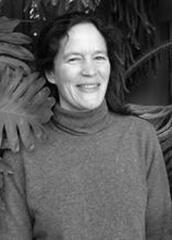 Robin Gottlieb, Professor of the Practice of Teaching Mathematics, aims to make mathematics accessible and exciting to all students in each of her courses. “When students come to Harvard, they have very different but set ideas of what happens in the classroom,” Gottlieb explains. “In many high school math classrooms, the dominant cultural norm is an ‘I do, you do, we do’ model. The teacher is expected to tell you what to do. One of my main objectives is to shift the culture of the classroom so that students become mathematical thinkers.” Gottlieb works alongside colleagues on the preceptor team to construct classrooms in which students actively participate in the development of ideas. Inspired by colleagues’ such as Eric Mazur’s active learning and John Asher Johnson’s
Robin Gottlieb, Professor of the Practice of Teaching Mathematics, aims to make mathematics accessible and exciting to all students in each of her courses. “When students come to Harvard, they have very different but set ideas of what happens in the classroom,” Gottlieb explains. “In many high school math classrooms, the dominant cultural norm is an ‘I do, you do, we do’ model. The teacher is expected to tell you what to do. One of my main objectives is to shift the culture of the classroom so that students become mathematical thinkers.” Gottlieb works alongside colleagues on the preceptor team to construct classrooms in which students actively participate in the development of ideas. Inspired by colleagues’ such as Eric Mazur’s active learning and John Asher Johnson’s 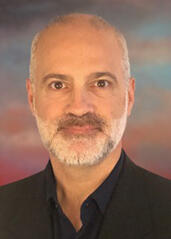 Paul B. Bottino, Co-Founder, Executive Director, and Lecturer at the Technology & Entrepreneurship Center at Harvard, offers
Paul B. Bottino, Co-Founder, Executive Director, and Lecturer at the Technology & Entrepreneurship Center at Harvard, offers 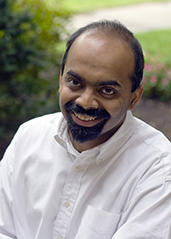 L Mahadevan, Lola England de Valpine Professor of Applied Mathematics in SEAS, and Professor of Organismic and Evolutionary Biology, and of Physics in FAS used a 2017-2018
L Mahadevan, Lola England de Valpine Professor of Applied Mathematics in SEAS, and Professor of Organismic and Evolutionary Biology, and of Physics in FAS used a 2017-2018 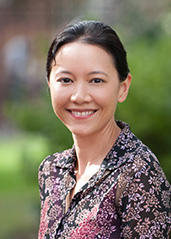 Rachel Carmody, Assistant Professor of Human Evolutionary Biology, explores a burgeoning new field in her course
Rachel Carmody, Assistant Professor of Human Evolutionary Biology, explores a burgeoning new field in her course 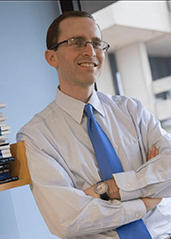 Benjamin Sommers, Professor of Health Policy and Economics, finishes his
Benjamin Sommers, Professor of Health Policy and Economics, finishes his  When Dr. Kevin Eggan, Professor of Stem Cell and Regenerative Biology, did research as an undergraduate, it “transformed for me what science was and what it could be.” His
When Dr. Kevin Eggan, Professor of Stem Cell and Regenerative Biology, did research as an undergraduate, it “transformed for me what science was and what it could be.” His 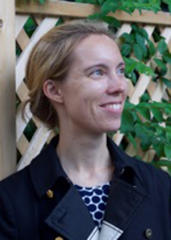 Karin Öberg, Thomas D. Cabot Associate Professor of Astronomy, taught departmental introductory course Stellar and Planetary Astronomy in 2016 by building on established material and modifying the curriculum using student feedback and her own observational assessment.
Karin Öberg, Thomas D. Cabot Associate Professor of Astronomy, taught departmental introductory course Stellar and Planetary Astronomy in 2016 by building on established material and modifying the curriculum using student feedback and her own observational assessment.
 Joshua Greene, Professor of Psychology, designs course sessions for maximum engagement by creating interactive opportunities for undergraduate and graduate students to grapple with problems and challenge one another. “It’s not a puzzle if there are not two competing, compelling arguments. I try to use students’ natural inclinations to achieve my pedagogical purposes—if they’re not at least a little confused, then I’m not doing my job.”
Joshua Greene, Professor of Psychology, designs course sessions for maximum engagement by creating interactive opportunities for undergraduate and graduate students to grapple with problems and challenge one another. “It’s not a puzzle if there are not two competing, compelling arguments. I try to use students’ natural inclinations to achieve my pedagogical purposes—if they’re not at least a little confused, then I’m not doing my job.”
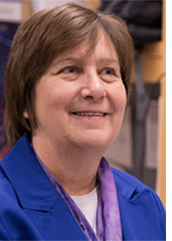 Marianne Wessling-Resnick, Professor of Nutritional Biochemistry, employs active learning strategies including debate, ‘
Marianne Wessling-Resnick, Professor of Nutritional Biochemistry, employs active learning strategies including debate, ‘